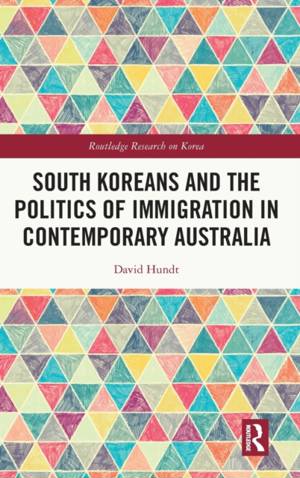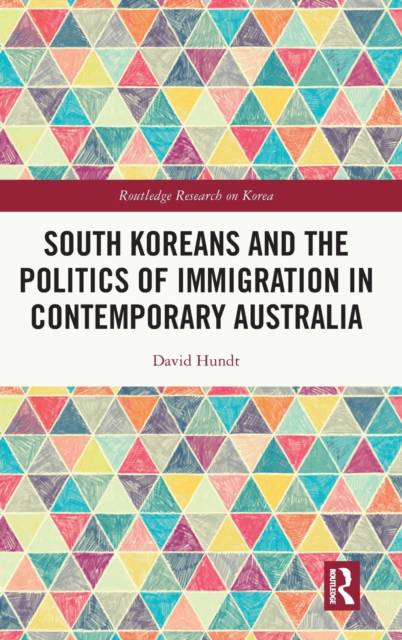
- Afhalen na 1 uur in een winkel met voorraad
- Gratis thuislevering in België vanaf € 30
- Ruim aanbod met 7 miljoen producten
- Afhalen na 1 uur in een winkel met voorraad
- Gratis thuislevering in België vanaf € 30
- Ruim aanbod met 7 miljoen producten
South Koreans and the Politics of Immigration in Contemporary Australia
David HundtOmschrijving
The book explores the politics of immigration in Australia through an in-depth study of the 'new generation' of young Korean migrants in Melbourne.
States with high rates of immigration such as Australia can largely determine who enter their societies, but some migrants, such as younger Koreans, can determine how and where they live due to desirable attributes such as their skills, education, and adaptability. The book uses Albert Hirschman's 'exit, voice, and loyalty' schema to explore the choices available to such new and would-be citizens, especially when faced with economic, social, and/or political decline in their host society. Through in-depth interviews, the book explores if young Koreans were most attracted to the options of staying in Australia (loyalty), changing it from within (voice), or leaving (exit). The most common experience among younger Koreans, the book finds, is loyalty: most respondents express satisfaction with their lives in Australia and want to make it their home. These findings reveal how a particular group of migrants negotiates their citizenship with a would-be host society. By extension, the book illustrates the range and degree of strategies available to other migrants and would-be migrants, and how they might secure their livelihoods and well-being at a time of greater restrictions on international migration.
This book will be of interest to scholars of multiculturalism and immigration history in Australia, citizenship and migration, and Korean studies.
Specificaties
Betrokkenen
- Auteur(s):
- Uitgeverij:
Inhoud
- Aantal bladzijden:
- 164
- Taal:
- Engels
- Reeks:
Eigenschappen
- Productcode (EAN):
- 9781032188966
- Verschijningsdatum:
- 4/08/2023
- Uitvoering:
- Hardcover
- Formaat:
- Genaaid
- Afmetingen:
- 156 mm x 234 mm
- Gewicht:
- 426 g

Alleen bij Standaard Boekhandel
Beoordelingen
We publiceren alleen reviews die voldoen aan de voorwaarden voor reviews. Bekijk onze voorwaarden voor reviews.











